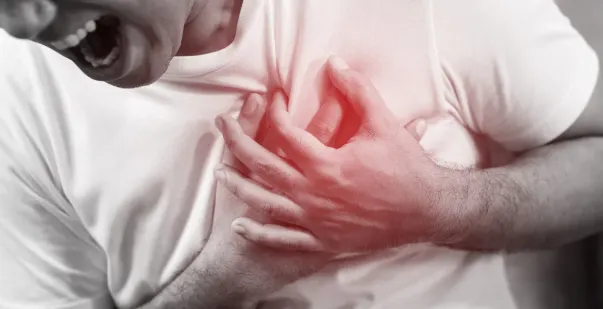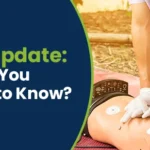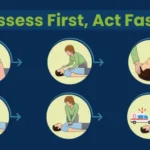Table of Contents:
- Introduction
- Questions to Ask Your Cardiologist About Chest Pain
- Questions to Ask After an Echocardiogram
- Things to Tell Your Cardiologist During Consultations
- Questions to Ask After a Heart Attack
Introduction
Chest pain can be scary, but asking the right chest pain questions to your cardiologist can make a big difference in understanding your health. Whether after a heart attack or an echocardiogram, knowing what to ask helps improve care. This guide will help you feel more confident when discussing your heart health.
Questions to Ask Your Cardiologist About Chest Pain
Chest pain can be a warning sign of a serious heart condition, so it’s important to ask your cardiologist the right questions. Knowing what to ask your cardiologist can help you gain a deeper understanding of your heart health during your appointment. Here are some questions and answers to help guide your conversation.
-
What could be causing my chest pain?
Chest pain can have various causes. This could arise from acid reflux, angina, or a heart attack. As per a study, involving 10,907 patient records, there were over 42 million emergency room visits where chest pain was the main issue. Your cardiologist will likely recommend heart rate variability tests or stress tests to determine thedetermine whether the cause of the pain.
-
How can I tell if my chest pain is a heart attack?
Heart attacks often cause intense chest pain that may spread to the arm, jaw, or back. Other symptoms include shortness of breath and nausea. If your chest pain comes with any of these symptoms, it’s critical to seek medical help immediately.
-
What should I do if my chest pain occurs during physical activity?
Chest pain during exercise may indicate that your heart isn’t getting enough oxygen, a condition known as angina. It’s important to stop exercising and inform your cardiologist. They may change your treatment plan, which could include medications or lifestyle changes. They might also do more tests to make sure you can exercise safely without straining your heart.
Questions to Ask After an Echocardiogram
An echocardiogram provides important details about your heart’s structure and how well it functions. After the test, taking a look at the results is key to managing your heart health. Some questions to ask your cardiologist after an echocardiogram include:
-
What did the echocardiogram reveal about my heart function?
This test checks how effectively your heart pumps blood and identifies any issues with the chambers or valves. Your cardiologist will explain whether your heart is functioning normally or if there are any heart conduction disorder that need attention.
-
Are there any signs of heart disease or damage?
An echocardiogram can show signs of heart disease, like thick heart walls or weak pumping. If the test finds any problems, your cardiologist will talk about the next steps. These might include lifestyle changes, medications, or other treatments to help your heart health.
-
Should I follow up with more tests or treatments?
Based on the results, your cardiologist may suggest more tests, like a stress test or imaging, to better understand your condition. They might also recommend treatments or lifestyle changes to help your heart and prevent future problems.
Things to Tell Your Cardiologist During Consultations
When visiting your cardiologist ensure you provide clear and detailed information about your health. Preparing questions to ask the cardiologist can help you feel more confident during your appointment. Here are some important things you should always mention during your consultation.
Any Symptoms You’re Experiencing
Tell your cardiologist about any symptoms you’ve been feeling, even if they seem minor. Common symptoms like chest pain, shortness of breath, dizziness, or irregular heartbeats could be signs of underlying heart problems. Be specific about when these symptoms occur, how often, and what seems to trigger them, as this helps your doctor pinpoint potential issues.
Your Medical History and Lifestyle
Your personal medical history, including any previous heart issues, high blood pressure, or diabetes, can play a significant role in your heart health. Also, be honest about your lifestyle choices, like your diet, exercise, stress levels, and if you smoke or drink alcohol. This information helps your cardiologist assess your risk factors and suggest changes to improve your heart health.
Medications and Supplements
Always inform your cardiologist about any medications, vitamins, or supplements you’re taking, even if they seem unrelated to your heart. Some medications can interact with heart treatments, and knowing what you’re taking helps your doctor adjust your treatment plan safely. Also, mention if you’ve had any side effects from prescribed medications, as this can help your cardiologist find alternatives.
Read More: Cardiac disease in the young: Recognizing and Understanding Early Signs
Questions to Ask After a Heart Attack
After a heart attack, it’s natural to have concerns about recovery and how to prevent another one. Asking the right questions can help you better understand your condition and the steps you need to take for a healthier future. Here are some important questions to ask your cardiologist after a heart attack.
-
What should I do to prevent another heart attack?
After a heart attack, you must make lifestyle changes that reduce your risk. Your cardiologist may suggest changes like eating a heart-healthy diet, exercising regularly, and quitting smoking if necessary. They may also recommend medications to control blood pressure, cholesterol, or other risk factors. It’s important to follow their guidance closely and attend regular check-ups to monitor your progress.
-
What kind of follow-up care will I need?
Your recovery plan will likely include follow-up appointments to track your heart health. Your cardiologist may recommend regular tests or check-ups to ensure your heart is healing properly. You can also ask questions to ask your cardiologist about any prescribed drugs and their side effects.
Read More: Post-cardiac Arrest Care (ACLS)
How to Communicate Effectively with Your Cardiologist?
When talking to your cardiologist, it’s important to be honest about all the symptoms you’re experiencing, even those that seem minor. Whether it’s chest pain, fatigue, or shortness of breath, every detail matters. You should also share your full health history, including family history of heart disease, previous surgeries, and any other conditions you have.
Don’t be afraid to ask questions if something isn’t clear. Medical terms and test results can be confusing, and your cardiologist is there to explain them. In fact, patients who actively ask questions are more likely to follow their treatment plans correctly, leading to better recovery.
You might consider questions to ask a cardiologist regarding the best diet and exercise plan to support your heart health. Let your cardiologist know how you’re managing these changes and if you’re facing any challenges. Being open about all things to tell your cardiologist can lead to better diagnosis and personalized care for your heart condition.
Work Towards Improving Your Heart Health Today
Asking the right chest pain questions is key to managing your heart health. Being open with your cardiologist will help them understand your situation better. Don’t be afraid to ask questions about what your pain means or how to prevent future issues. The more you know, the easier it is to take charge of your heart health. Consider enrolling in an ACLS course to further empower yourself with the knowledge and skills required to improve your health.







